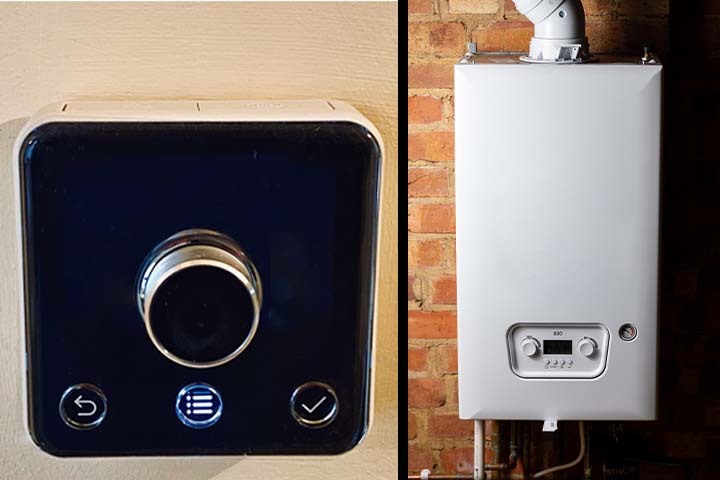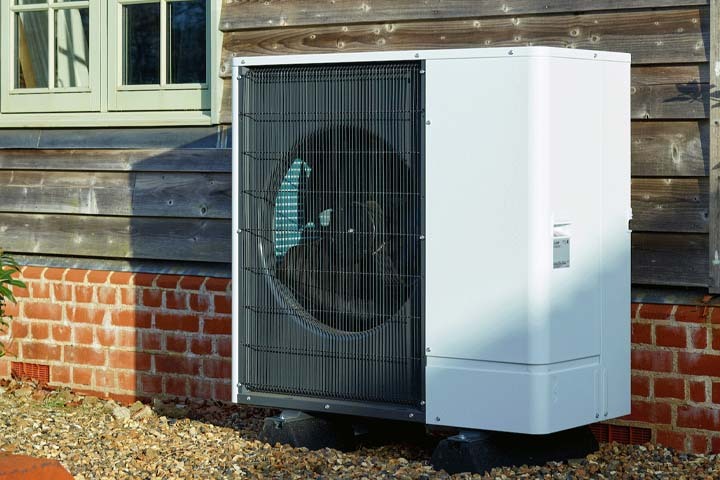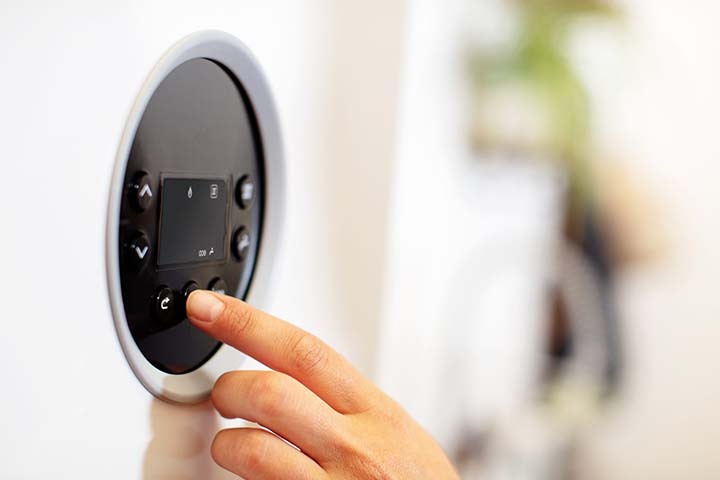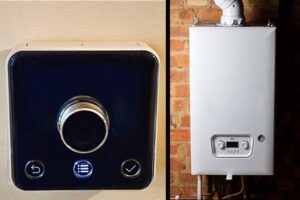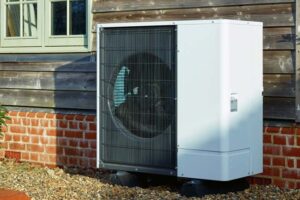Table of Contents
The Great British Insulation Scheme (GBIS), or ECO+, is an energy-efficiency scheme introduced in March 2023 to run alongside ECO4. The government has allocated an incredible budget of £1 billion to promote domestic energy efficiency in the UK. It aims to enhance energy efficiency for 300,000 homes and is set to propel the scheme until March 2026.
The UK government supports this scheme, which is performed by the Office of Gas and Electricity Markets (Ofgem).
The Great British Insulation Scheme aims to get the UK closer to net zero by 2050.
The scheme is developed to help the UK’s most vulnerable energy-efficient homes address fuel poverty and lower their carbon footprint by delivering domestic insulation upgrades. After a house assessment of qualifying homes, each household’s most efficient insulation solution is chosen.
The Great British Insulation Scheme provides one insulation measure to eligible households, unlike ECO4, which enhances energy efficiency extensively.
Understanding The Great British Insulation Scheme
The Great British Insulation Scheme’s (GBIS) main objectives are to lower energy consumption and improve home’s EPC rating by offering free insulation grants. The scheme seeks to make homes more affordable to keep warm. And it will reduce fossil fuel consumption used to heat homes.
The GBIS assists with a range of helpful insulation measures, such as loft, wall, and floor insulation. It ensures a comprehensive approach to energy efficiency.
How Does GBIS Work?
The process to access GBIS benefits is straightforward. It ensures that eligible homeowners can easily apply and get support.
Application Process
Homeowners can apply through our online portal. Here, they have to provide details about their property and existing insulation levels.
Assessment and Approval
Following the application, an energy assessment is conducted to determine the most effective insulation measures for the property. After that approval and funding are granted.
What Do Insulation Grants Get You?
Energy companies generally decide what kind of insulation to use, how much to cover, and how to pay for it.
In some cases, the Great British Insulation Scheme might pay for all low—and middle-level home insulations, but households might have to pay for more expensive ones.
Most of the time, loft and cavity wall insulation are the main types of insulation projects. However, currently GBIS covers the following types of home insulation measures:
- Cavity wall insulation grants
- External wall insulation grants
- Solid wall insulation grants (internal and external)
- Loft insulation grants
- Flat or pitched roof insulation grants
- Underfloor insulation grants
- Solid floor insulation grants
- Park home insulation grants
- Room-in-roof insulation grants
Once approved for grant assistance, your property will be inspected to determine the best option based on its needs.
Main Types of Insulation Covered
GBIS covers various types of insulation, ensuring comprehensive coverage for different home structures.
Let’s explore the main:
Loft Insulation
Loft insulation is a primary focus, given its efficiency in preventing heat loss through the roof.
Wall Insulation
The scheme also supports wall insulation, including cavity walls and solid wall insulation, to enhance thermal retention.
Home Benefits of the Great British Insulation Scheme
Home insulation is a practical approach to renovate, protect, and improve your home. It reduces your carbon footprint, making it a worthwhile investment.
Some benefits of effective home insulation are:
Reduce energy costs- Insulating your whole house can save you a lot of money. Cavity wall and loft insulation can lessen your home’s heat loss by as much as 60%, which can save you up to £650 a year on your energy bills.
Cut down on your carbon impact- UK homes are notoriously inefficient—they put out more CO2 than all the cars in the UK put together. By properly insulating your home, you can lower your yearly carbon emissions by up to 1.7 tonnes. It helps make the world a healthier place.
Make your home healthier- Mould, mildew, and rot love to grow in homes that are damp and draughty. This is not only bad for your health but also for the structure of your house. Mould makes getting lung diseases and asthma more likely. When you insulate your home properly, you create a dry and balanced environment inside that keeps your home safe and saves your health.
Increase the value of your home- Properly insulated homes are worth a lot more in the property market. Adding insulation increases their Energy Performance Certificate (EPC) rating, which makes them more appealing to people who want to buy or rent them.
Insuring your home is one of the best ways to protect your health, your savings, and the world at the same time. The free insulation grant scheme (GBIS) in the UK helps eligible families make these kinds of improvements.
Who is Eligible for Free Insulation (GBIS) Scheme?
This criteria depends on your income, the Energy Performance Certificate (EPC) rating of your house and other factors to determine whether you need this kind of help.
To get free insulation from the GBIS, you can either own your home or rent a house. The eligibility requirements are mostly the same in both situations.
You’ve to meet the following eligibility criteria to benefit from GBIS:

Eligibility Criteria
Household Category | Low-Income Group | General Group |
Owner Occupiers | If the household owns the home and its EPC is D or below, it can receive any qualifying insulation measure, plus heating controls. | 1. Must be living in a Council Tax band A-D home in England or A-E in Scotland and Wales 2. If the household owns the home and EPC D or below, then the household can receive any qualifying insulation measure. |
Private Rented | Private renters having home EPC rating D or E can receive any qualifying insulation measure | Private renters with home EPC D or E can receive any qualifying insulation measure other than cavity wall insulation and loft insulation |
Social Housing | If the household lives in EPC E or below social housing, can receive any qualifying insulation measure. If the home is EPC E, F, or G, only a qualifying innovation measure is allowed. | All social renters are included in the low-income group |
How Can You Apply For Insulation Grants?
If you want to apply for The Great British Insulation Scheme, you can visit the Free Boilers Grants online. This includes a qualification survey, setting up an assessment of the housing, and some basic details.
To apply for the Great British Insulation Scheme, submit your online application. We are responsible for the housing estimate and grant.
The GBIS is open until March 2026.
Working with the right professional installer can make the difference between years of peace and endless repair bills. Our expert installers will do the wall and loft insulation work for you, and most people who are looking for one end up spending a lot of time studying and vetting them before they find the best one for their home.
As a reliable energy provider, we will provide the best installation services under the free insulation grant scheme.
Check your eligibility in 60 seconds for free home insulation that fits your needs. Click here to start now!
Conclusion
Hence, the Great British Insulation Scheme, with a £1 billion budget, aims to upgrade energy efficiency for 300,000 homes. It emphasises individual insulation tasks and collaborates for added support. Moreover, the scheme benefits low-income households. Its goals are to net zero carbon emissions and promote an environmentally friendly future.
Major energy companies’ collaboration also ensures a wide contribution to this positive initiative. However, eligibility depends on several facts. What’s more, you can apply only for one insulation measure. You might be asked to participate if you need more than one measure. Moreover, GBIS is a comprehensive initiative addressing a wide prospect of energy efficiency.
Frequently Asked Questions
The Great British Insulation Scheme upgrades the energy efficiency of inefficient homes. Homes with an EPC below D and government-benefitted households can be eligible.
Berks Insulation can offer free loft insulation to qualified homes for the Great British Insulation Scheme. Residents with a home EPC below D and receiving one or more government benefits can be qualified. (Company name) offers home assessments on its website to check eligibility.
The Great British Insulation Scheme (GBIS) and the Energy Company Obligation (ECO4) scheme are active and set to run until March 2026. Each qualifying household can get one grant once.
In the UK, each grant scheme that ends is usually quickly replaced by a new one. This means that new schemes will start appearing after 2026 onwards.


